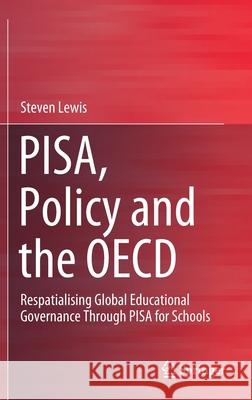Pisa, Policy and the OECD: Respatialising Global Educational Governance Through Pisa for Schools » książka
topmenu
Pisa, Policy and the OECD: Respatialising Global Educational Governance Through Pisa for Schools
ISBN-13: 9789811582844 / Angielski / Twarda / 2020 / 192 str.
Pisa, Policy and the OECD: Respatialising Global Educational Governance Through Pisa for Schools
ISBN-13: 9789811582844 / Angielski / Twarda / 2020 / 192 str.
cena 564,88
(netto: 537,98 VAT: 5%)
Najniższa cena z 30 dni: 539,74
(netto: 537,98 VAT: 5%)
Najniższa cena z 30 dni: 539,74
Termin realizacji zamówienia:
ok. 22 dni roboczych.
ok. 22 dni roboczych.
Darmowa dostawa!
Kategorie:
Kategorie BISAC:
Wydawca:
Springer
Język:
Angielski
ISBN-13:
9789811582844
Rok wydania:
2020
Wydanie:
2020
Ilość stron:
192
Waga:
0.47 kg
Wymiary:
23.39 x 15.6 x 1.27
Oprawa:
Twarda
Wolumenów:
01
Dodatkowe informacje:
Wydanie ilustrowane











